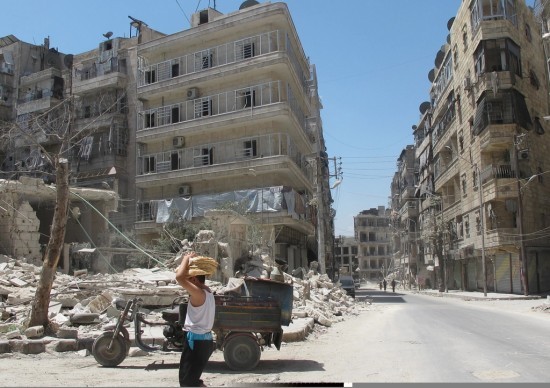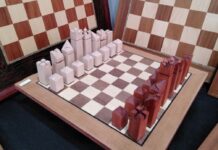Peter Fieldman[1]
The guns have fallen silent in Aleppo but will the fragile cease fire last? Assad with his Russian allies claims to have finally taken control of the city. But what has he achieved? Looking at images of desolate streets with hollowed out buildings, severely damaged churches and mosques, derelict hospitals and schools he must ask himself if it has been worth the cost. With so many different armed groups involved, world leaders in the UN, USA and EU have been unable to resolve the Syrian crisis which began five years ago and prevent the enormous misery and destruction unleashed on the Syrian people?
A few weeks ago I was in the Jordanian capital, Amman, where I was invited to lunch at a modern multi storey shopping centre. Being Friday, the food hall was crowded with families. The top level housed an amusement arcade complete with a roller coaster and other theme park attractions on a miniature scale. Bearing the noise, I watched the kids enjoying themselves, imploring their parents to buy them tickets to ride or play video games.
I could not help thinking that while these Middle Eastern families were living peacefully and enjoying what we consider a normal lifestyle, less than 600 kilometres to the north in Aleppo, similar families and children have been subjected to years of bombing, which has left their city and lives in tatters.

It is becoming hard not to find a comparison between the bombing of Aleppo by the Russian air force and the destruction of Guernica by Germany’s Condor Legion and Fascist Italy’s Aviazione Legionaria in April 1937 used by Hitler to test the Nazi war machine. Guernica was not a military target and the bombing, which razed the town to the ground, caused civilian victims.
The fight against ISIS or Daesh or Al Qaida has little to do with Assad’s war on Aleppo. The city was a vibrant economic and cultural city of more than two million people, which has been left in ruins by Assad’s obsession to remove a minority of so called “rebels” – even if they were linked to Isis and Daesh – who dared to defy the Syrian dictator. Like Franco in Spain he has benefited from the support of a major military power to reach his objective and crush opposition using sophisticated modern weapons and, according to humanitarian sources, outlawed chemicals.
As in Franco’s Spain, the major western powers did little or nothing to prevent or stop the bloodshed and may have even condoned it in the belief that the real enemy was the Islamic State. What Russia hopes to gain is also uncertain, other than for Mr Putin to demonstrate Russia’s growing political and military strength, if it is not already apparent to western secret services and armed forces.
But as is now usually the case with armed conflicts, the majority of the victims are families and children, rather than combatants. Countless lives have been lost, homes destroyed and millions displaced either to Jordanian, Lebanese or Turkish camps or on a desperate journey to Europe whose Governments do not know how to deal with the refugee crisis.
Time dictates that Assad will ultimately step down, be replaced or die leaving someone else to sort out the mess he created. It will take years for Aleppo and Syria to recover, if ever, and many of its most educated and qualified citizens may never return home, seeking new lives in Western Europe or North America leaving the country without a future. Many cultural and historical sites have also been destroyed by the bombing or the Islamic State’s policy of eliminating archaeological sites which conflict with their radical beliefs.
It is an incalculable tragedy and the U N and the West must bear some responsibility for a situation which is still far from being resolved and increases daily the risk of more terrorist attacks within Europe and the USA which could destabilise our own societies. In 2017 there will be a new and unpredictable U S President, the complexity of Brexit and several European elections to deal with; events which could transform the European Union and even threaten its existence. And this time there is no Picasso to immortalise the horror.
- Peter Fieldman, NUJ Writer. Author of “The World at a Crossroads” published by Austin Macauley in London


